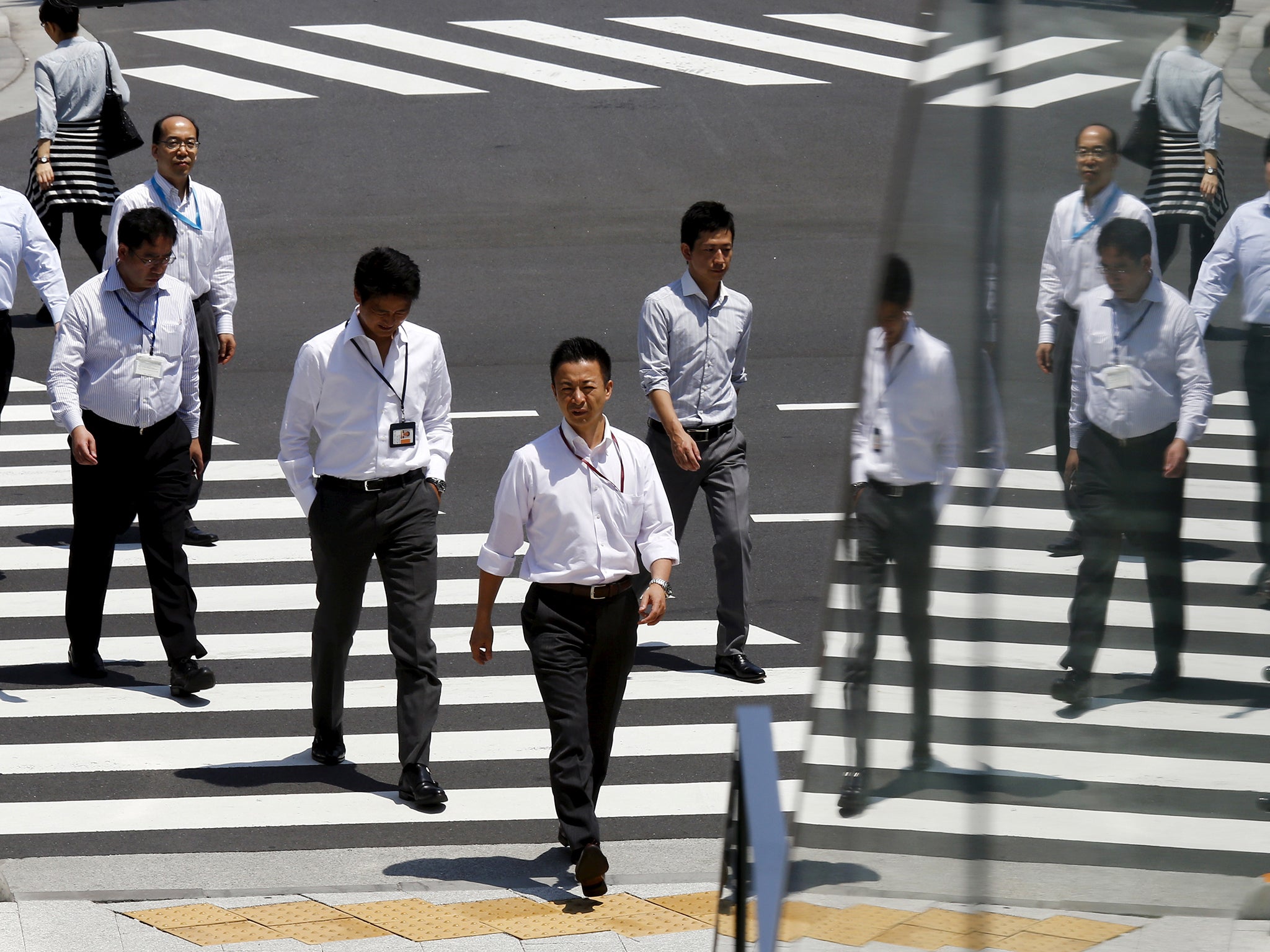Japanese company considers three-day weekend as country attempts to reverse long-hours culture
Research shows that staff at nearly a quarter of companies in the country are working more than 80 hours of overtime a month

Your support helps us to tell the story
From reproductive rights to climate change to Big Tech, The Independent is on the ground when the story is developing. Whether it's investigating the financials of Elon Musk's pro-Trump PAC or producing our latest documentary, 'The A Word', which shines a light on the American women fighting for reproductive rights, we know how important it is to parse out the facts from the messaging.
At such a critical moment in US history, we need reporters on the ground. Your donation allows us to keep sending journalists to speak to both sides of the story.
The Independent is trusted by Americans across the entire political spectrum. And unlike many other quality news outlets, we choose not to lock Americans out of our reporting and analysis with paywalls. We believe quality journalism should be available to everyone, paid for by those who can afford it.
Your support makes all the difference.A Japanese company is considering introducing a three-day weekend for its employees in a bid to tackle a culture of overworking.
Internet company Yahoo Japan Corp is thinking about reducing the number of working days to four-a-week by 2020.
The move comes as the country is driving efforts to put pressure on companies to abandon the long-working-hours culture while boosting productivity.
“We don’t see the three-day weekend system as the end goal but an option,” company spokeswoman Megumi Yagita told Bloomberg.
“By giving employees more freedom on how to work, we’re hoping that employees choose a style that lets them perform at their best, so that we boost productivity,” she added.
The Japanese government and businesses will launch a campaign from February designed to let employees leave early on the last Friday of every month to spend more time with their families.
But Japan is known for its rigid work practices and the measures come amid a bleak time for Japanese workers.
The suicide of a 24-year-old woman, who had just joined Japan’s advertising giant Dentsu, prompted the company’s president to resign earlier this month.
Dentsu have since announced new measures such as switching off the office lights between 10pm and 5am.
The Japanese even have a word to describe death by overwork or related illness or suicide - "karoshi".
Although extra work is capped at 45 hours a week, companies have been able to waive the regulation in agreement with some unions and employees often push staff to under-report the hours they work.
Government spokesman Yoshihide Suga said Japan needs to “end of the norm of long working hours so people can balance their lives with things like raising a child or taking care of the elderly".
Prime Minister Shinzo Abe commissioned a task force to tackle long working hours, expand the workforce, and improve working conditions for non-contracted employees.
The "work style reform" is expected to be revealed by March.
Join our commenting forum
Join thought-provoking conversations, follow other Independent readers and see their replies
Comments